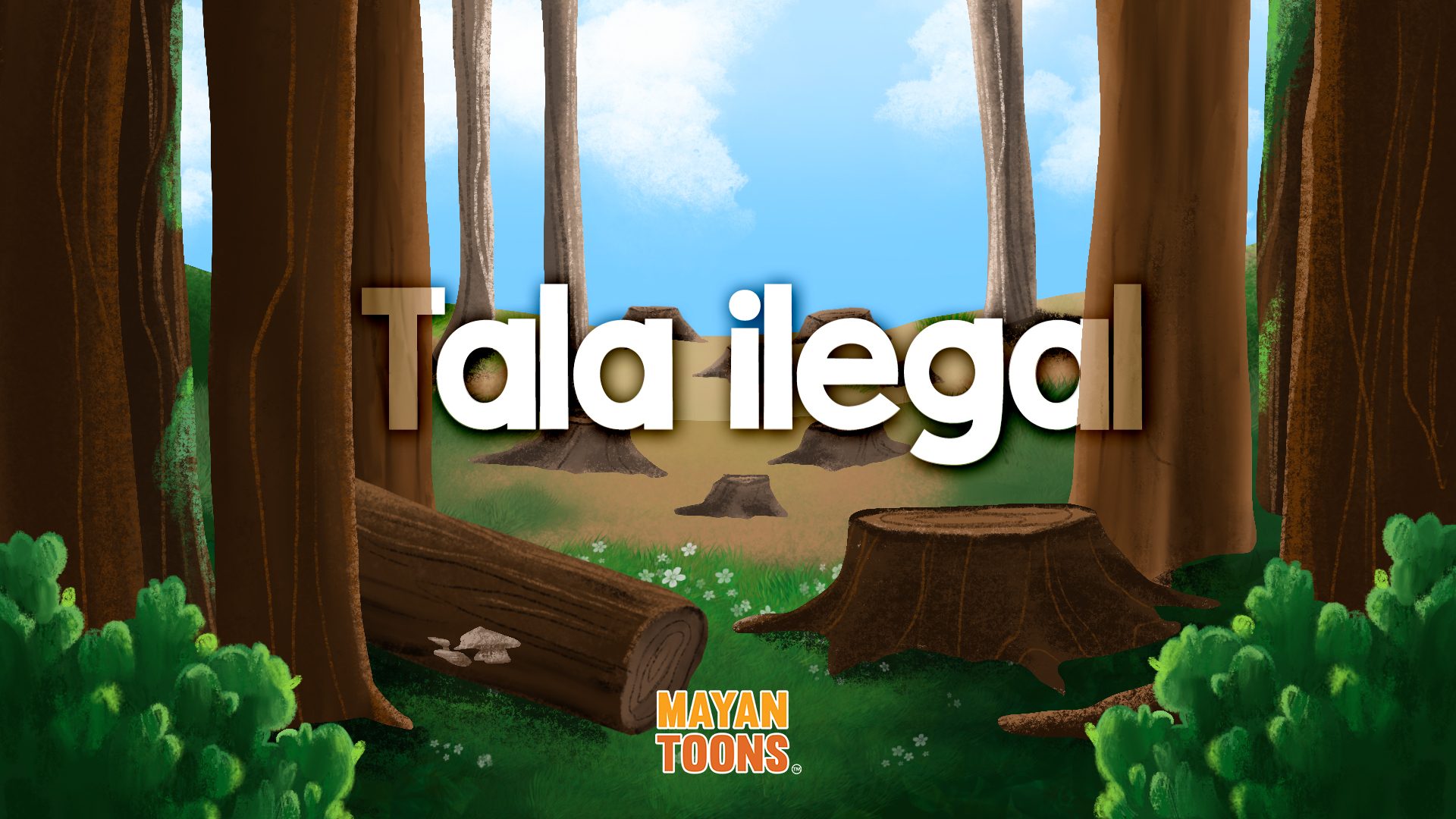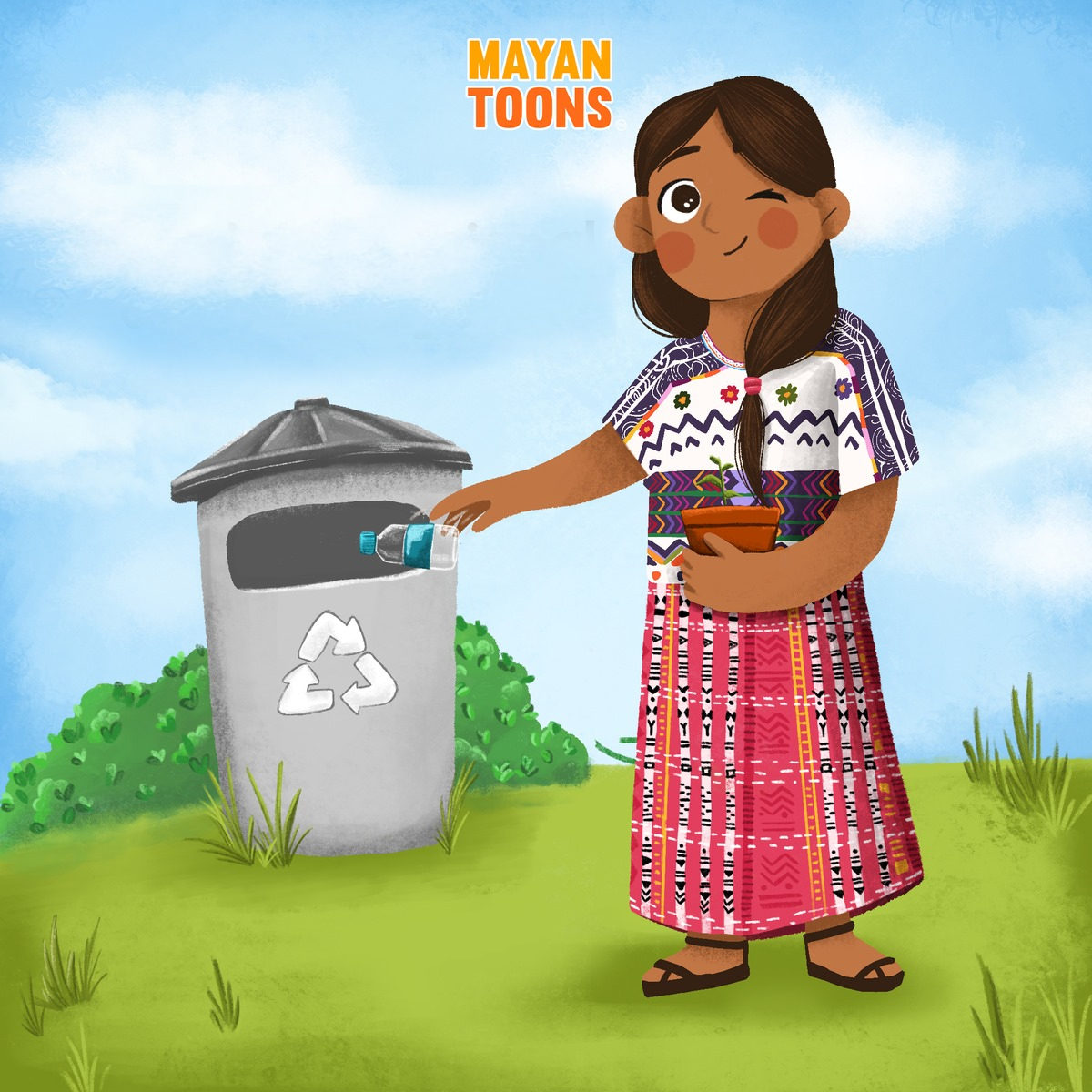
Illegal logging is a reality that greatly affects both the ecosystems that depend on the natural cycles of trees, and the families and communities that depend on their benefits both for their daily consumption in the absence of electricity or gas and for their self-sustainability. However, there is a popular narrative in Guatemala regarding this and a misconception of how indigenous peoples in Guatemala make use of the surrounding forests. Despite the lack of updated data regarding the percentage of Guatemalan families that depend on the use of firewood for basic cooking, heating and lighting (just to name a few uses), according to the report by the National Forest Institute INAB, the common uses for the forest resource are: energy and timber. And most of the rural population and to a lesser extent the urban population use firewood for cooking, reaching 69.6% of households in the country (Benavente, 2020).
On the other hand, due to different problems that endanger indigenous perspectives and practices, and in this case the Mayan, in terms of protection and connection with nature, the lack of opportunities and the precarious conditions in which thousands of families live in Guatemala make the problem of deforestation even more serious. There is no denying that there is an evident disruption aggravated specifically by poverty and extreme poverty that forces families and populations -who for generations have protected the forests and their ecosystems- to give in or not to denounce cases of illegal logging, based on manipulation and threats from many official authorities, who not only operate in different parts of Guatemala, but also in neighboring countries.
Such is the case occurred in La Güera -located on the borderline between Guatemala and Mexico-, in 2018, when the civil police and the army surprised a group of three loggers and offered the local staff of FUNDAECO and the National Council of Protected Areas (CONAP), to “fix” the situation of the evident scene of illegal logging of coveted timber. In this specific case, the park guards shared on an article to Guatemalan newspaper, El Periodico, their discontent and concern about a violent and uncertain situation that in many cases could cost them their own lives. Their stories make it clear that the timber mafia has managed to corrupt the integrity of many members of the security forces and public officials, which leaves us with the fact that any Guatemalan would feel distrustful of their own public institutions if had to go in a similar situation.
In this case alone, the Mexican logger offered them the amount of $2,500, supposedly to be brought by a colonel from the Secretariat of National Defense (Sedena), -the agency in charge of administering and organizing the Mexican army-, in exchange for releasing them. The following is an excerpt from the conversation that highlights this situation, and leaves us with whether these cases are properly taken up and followed up by the Guatemalan authorities, whose duty it is to protect the life of both the land, but more specifically the people who look after it, and who have done it for thousands of years.
– Where are you from? Guatemala or Mexico? -asked the logger, still rocking in the hammock, recalls Emilio.
– From Guatemala.
– Let’s fix it. Let’s wait until noon.
– What for?
– A colonel from the Mexican army is coming, he is our boss, he sends us here to get the wood, and he can give you the money you need. We can negotiate my freedom, let’s wait for him,” insisted the logger (elPeriódico, 2022).
This is not the only problem that puts at risk the dynamics that involve the Guatemalan population with the public institutions corresponding to the problems that affect not only Guatemala’s environmental situation, but that of Central America as a whole. Last March, the Guatemalan government proposed an initiative called “Law that Places the Institutions of Environmental Competence under the Coordination of the Ministry of Environment and Natural Resources”. This was presented by Congresswoman Shirley Rivera, president of the Congress, other members of the Board of Directors and congressmen related to the ruling party, in which it is intended to eliminate the government offices that watch over the environment. This new law, in order to hand over their field of action and funds directly to the Ministry of Environment (Marroquín, 2022). The proposal could be catastrophic due to the fact that those well established institutions are the ones that protect sacred forests and lands in collaboration with Mayan communities.
Thus, with this message, we intend to understand that the felling of trees goes far beyond a misconception about those who really put at risk the habitat of thousands of native species in Guatemala. And worse still, they represent an indelible rupture in the Mayan practices that for many years have protected life itself. The Guatemalan population, both rural and urban, has the responsibility to analyze these types of situations and consciously be critical of the ways in which the Guatemalan State handles cases that concern not only “natural resources”, but populations with ancestral knowledge such as those of the Mayan populations in Guatemala.
Article by Laura Morales
Bibliography:
Benavente, C. (2020, July 11). Consumo de madera y leña en Guatemala. Noticias Green. https://noticiasgreenpress.com/2020/07/11/consumo-de-madera-y-lena-en-guatemala/
(2022, October 1). Patrullaje en la selva Maya: La lucha contra la tala ilegal en la frontera Guatemala-México. elPeriodico. https://elperiodico.com.gt/cultura/arq-ambiente/2022/09/28/patrullaje-en-la-selva-maya-la-lucha-contra-la-tala-ilegal-en-la-frontera-guatemala-mexico-2/
Marroquín, P. C. K. C. Y. (2022, September 6). Conap rechaza creación de un “súper ministerio de Ambiente” y estos son sus argumentos. Prensa Libre. https://www.prensalibre.com/guatemala/politica/conap-rechaza-creacion-de-un-super-ministerio-de-ambiente-y-estos-son-sus-argumentos/




